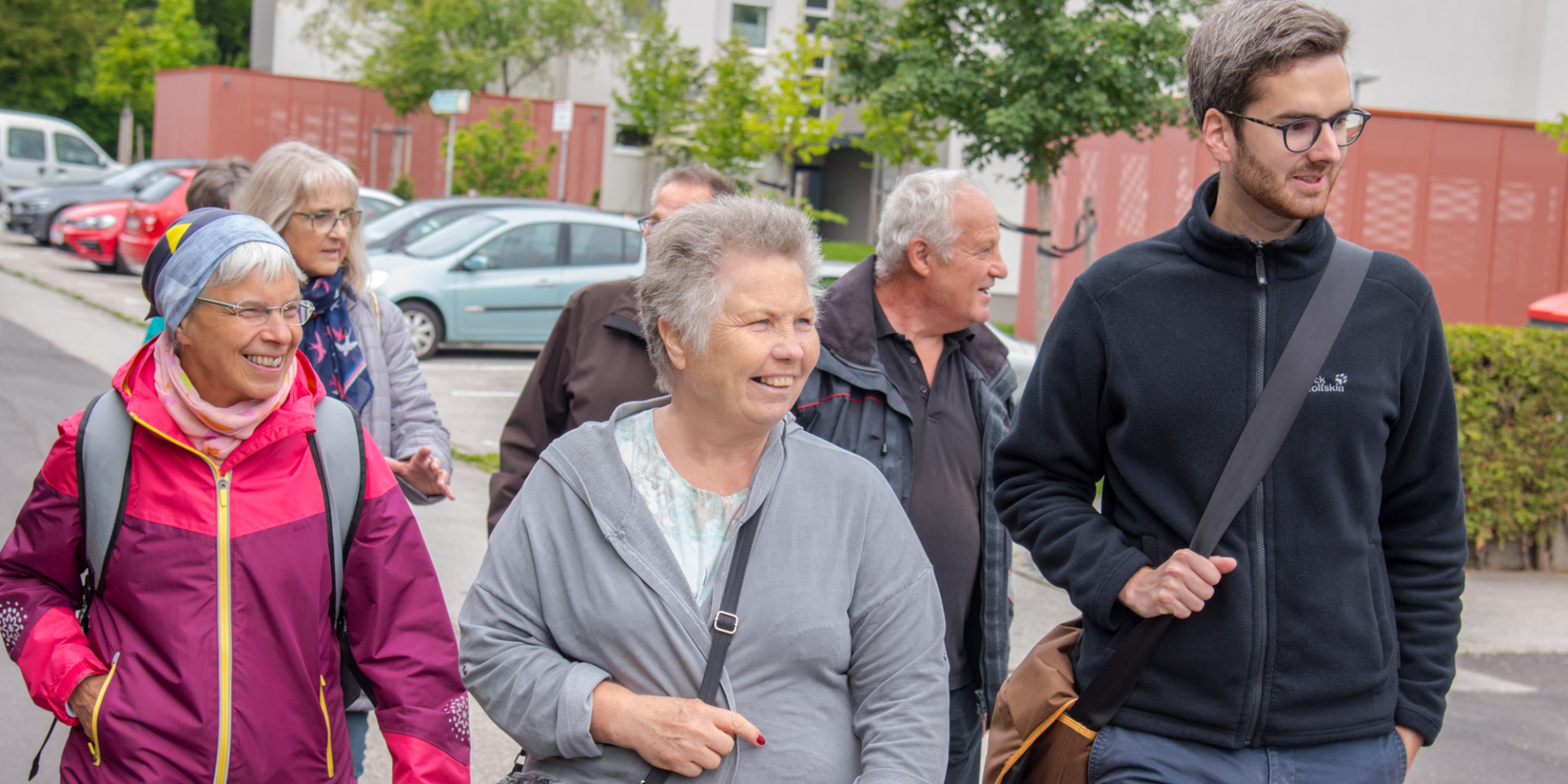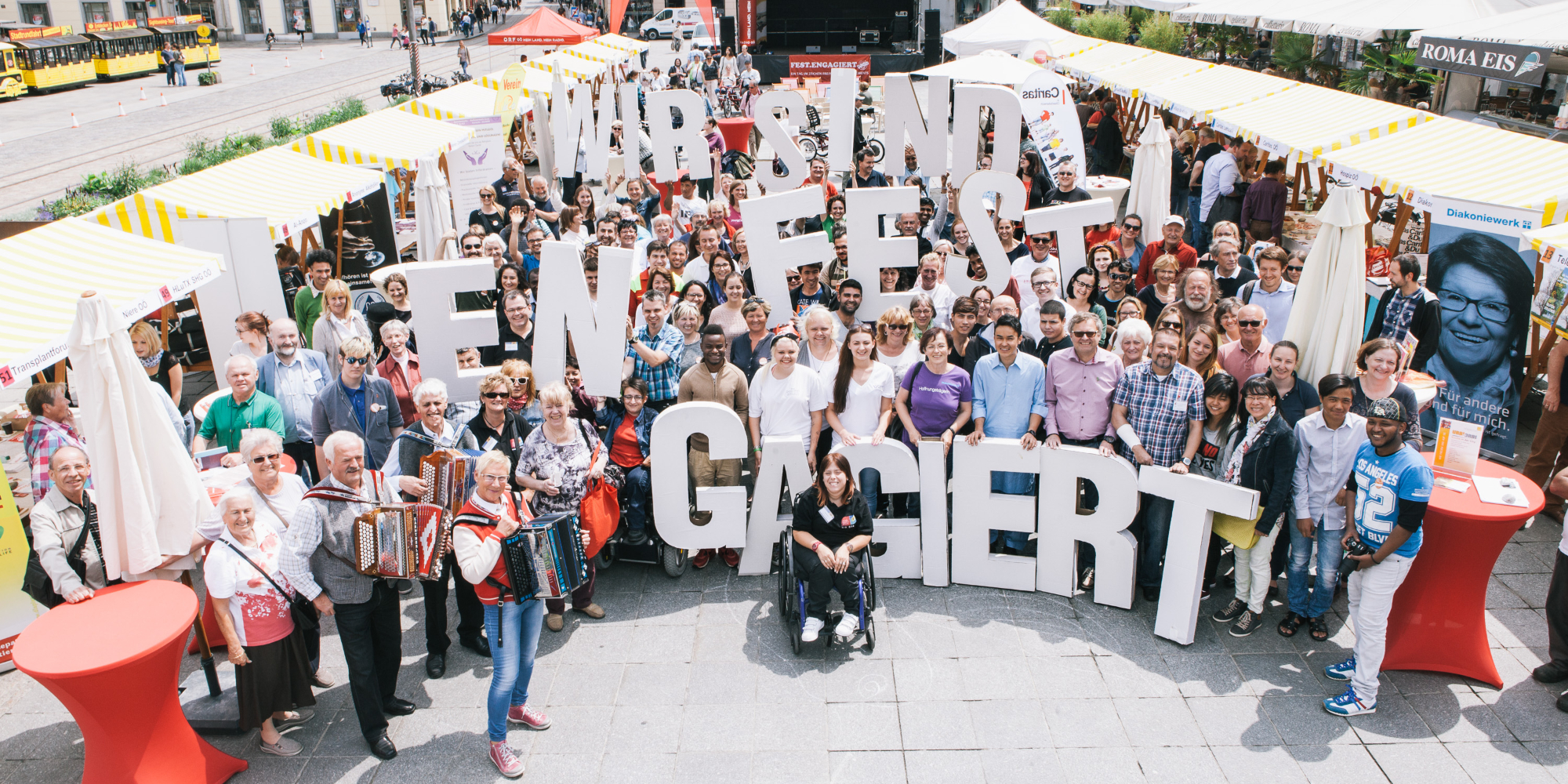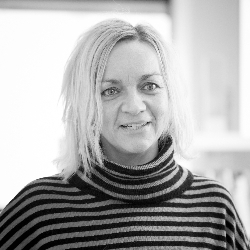It is March 2020 and all of Austria is sent to lockdown due to exponentially rising corona cases. Streets, public places and offices are getting empty. Everybody stays at home. At the same time one has the impression that suddenly everywhere there are people who want to help, who are willing to risk their health for others and who go out. Were you surprised by the extent of this willingness to help?
Nicole Sonnleitner: Yes and no. It needs to be said that in almost every acute phase of a crisis there is a wave of spontaneous helpfulness. You didn’t just see this in 2020, it was also in 2015, in the major refugee movement like this and in many cases before that – just think of ” Nachbar in Not” or flood disasters. And just so we don’t misunderstand each other: It is always great to see how many people are willing to get involved for others when it really matters. Sometimes this willingness to help is so great and exuberant that it exceeds real needs. In Upper Austria in March and April there were at times much more people who wanted to go shopping for others than there were people who actually needed things to be done for them. Nevertheless, it is precisely the fact that this willingness to help is so spontaneous and exuberant that makes civil society so indispensable, especially in acute situations – no authority in the world can bring help so quickly, directly and efficiently to where it is needed at the moment.

So civil society is working – but why make a symposium about its future then?
Nicole Sonnleitner: Quite simply because this dynamic has nothing – or very rarely – to do with the fact that at such a moment, practically overnight, completely new problems would arise. Rather, existing imbalances, deficits and injustices become visible to everyone at once – and appear accordingly dramatic. But as soon as the crisis has lost its initial impact, as soon as we have become used to the much-cited “new normality” and our everyday life is back to more or less normal, these problems lose their drama. They secretly disappear again from public discourse and thus from our field of vision. This does not mean, however, that these problems are eased, or even solved.
This is precisely why all the talk about every “crisis being an opportunity” is primarily just talk. An example: The “pupils who were not reached” so often during the lockdown, who do not start the next, hopefully halfway normal, school year in full and then get the chance for a brilliant career. Many of them will be left behind. But nobody will talk about them any more. So the crisis will certainly not be an opportunity for these children. The same unfortunately applies to many people with a migrant background, single parents and so on and so forth. In my view, the fact that every crisis is an opportunity is mainly marketing talk that has little or nothing to do with reality. Especially not if we do nothing and fail to address real changes. It is precisely this, admittedly trivial, message that we want to convey with our symposium. If we want to make something of the many new ideas that emerged in March and April of this very special year in the medium and long term, then we have to do something now. Only then will these initiatives help us move forward as a society in the long term.
Can you give us examples of such initiatives?
Nicole Sonnleitner: Our new project with the Johannes Kepler University. It’s great when students get involved in times of a lockdown and help children from educationally disadvantaged backgrounds to learn. But what’s even better is that a university joins forces with a recognized and independent platform for voluntary commitment like us to initiate its own courses and give students official recognition of their commitment in the form of ECTS credits. In addition to the esteem that this expresses, new people are motivated to become active and sensitized to the fact that each and every one of us bears responsibility, not only for ourselves, but for our society as a whole. With this pilot project we want to work together with JKU to turn spontaneous initiatives by students into a lasting enrichment for our society.

Let’s move on to the symposium itself. What is on the program?
Nicole Sonnleitner: Well, we’ll start right away with a super exciting opening talk. We are particularly pleased that Minister of Health Rudolf Anschober will be present, who has to cope with the exceptional year 2015 as Integration State Councillor and now the next challenging year 2020 as Minister of Health. Also on the podium will be Social State Councillor Birgit Gerstorfer, the Rector of JKU, Meinhard Lukas, the Artistic Director of Ars Electronica Gerfried Stocker and myself. This mix of federal and state politics, science, art and civil society is, I think, very promising.
Afterwards, top-class speakers will discuss various aspects of the past months and their respective future potential: Bernhard Heinzelmaier, managing director of the market research company tfactory, will talk about the value shifts triggered by Corona, we will present best practice examples such as the Corona School in Germany, we will discuss the future of the Corona School together with Johann Bacher, sociologist at JKU, the ÖH chairman Mario Hofer, the rector of the educational university of the diocese Linz Franz Keplinger and the scientist Claudia Fahrenwald about the new concept of the Service Learning, there will be someone from the neighbor initiative ” Meine, Deine Gartenzeit” and others more. We really want to show how creative and inspiring the range of civil society involvement is. Our symposium is designed to motivate more people to get involved, to win new supporters from the worlds of science, art and business, and to get politicians to promote this dynamic. These are our concerns.
How many visitors can attend your symposium?
Nicole Sonnleitner: On site, unfortunately, far not enough, because we comply with all safety measures and want to minimize the risk of infection for all participants. That’s why only 60 people can enter the Sky Loft, but – and that’s a big, big BUT – with the support of Ars Electronica’s colleagues, we’ll also be offering a real, proper online symposium for the first time. We’ll be streaming all discussions, lectures and presentations, and we’ll make it possible for interested parties to join in via chat functions, ask questions and have their say. This step into the net ties in with the many experiments and attempts that we – like everyone else – have made in the past months and that have shown us – like everyone else – what already works great and what doesn’t work at all. Speaking of the Net: In the run-up to the symposium, we will also post short videos in which volunteers, experts, politicians and representatives of NGOs and associations talk about their experiences and newly gained insights and views on civil society engagement in times of Corona.

Nicole Sonnleitner is a trained nurse and has studied social economy at the Johannes Kepler University. She works freelance as an auditor for adult education institutions at the Institute for Research on Vocational and Adult Education and as a supervisor, coach and organizational developer in training. Since 2008 she has been the head of the Unabhängiges Landes Freiwilligenzentrum in Upper Austria and since 2020 she has been the spokesperson of the Interessensgemeinschaft Freiwilligenzentren Österreich. Privately, Nicole Sonnleitner is constantly involved in the field of asylum and integration.
